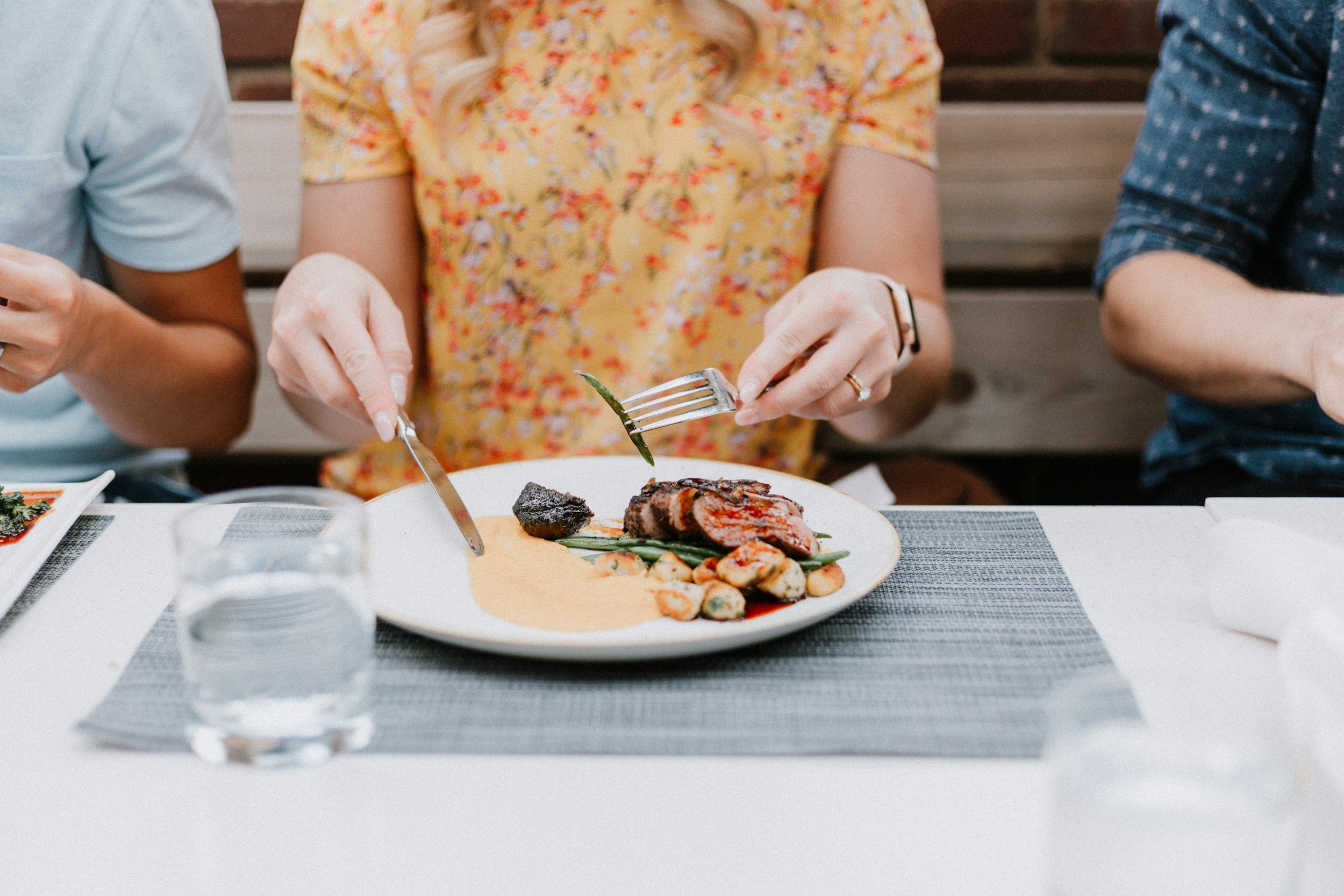Why Food Feels So Hard and What You Can Do About It
Raise your hand if you’ve ever stared at the fridge, completely blank on what to eat—even though you’re hungry, you want to feel good in your body, and maybe you even have groceries on hand. Or maybe you've spent the whole day making food decisions for your kids, your partner, your workday: and by dinnertime, the thought of one more choice feels like you’re pushing a boulder up a mountain.
You're not alone.
For many of us—especially if you're navigating ADHD, parenting, trauma recovery, or just plain burnout: food can start to feel less like nourishment and more like a chore. And that's exactly what this guide is here to help with.
What’s Really Behind the “Food is Hard” Feeling?
When clients tell me they feel “lazy” or “undisciplined” about eating, I gently push back. Because more often than not, what they’re describing isn’t laziness: it’s decision fatigue and health noise. (wait, what’s health noise?! Don’t worry, I’ll explain)
Decision fatigue is what happens when you’ve already made hundreds of decisions in a day: about emails, work tasks, how to respond to a text, what to feed your family, how to handle a meltdown and your brain simply has no room left to choose what you need.
Add in health noise all the conflicting messages about what you should eat, when, how much, how “clean” or “natural” it should be and it’s no wonder your brain starts buffering every time you try to plan a meal.
Over time, this leads to:
Skipping meals or forgetting to eat
Feeling overwhelmed by grocery shopping or cooking
Relying on chaotic snacking instead of satisfying meals
Falling into “all or nothing” patterns with food
Confusing hunger, cravings, and emotions because it’s all tangled together
You’re Not Broken. But Your System Might Be.
This isn’t a willpower issue: it’s a system issue. When there’s no consistent rhythm to your eating (especially for ADHD brains), or if you're recovering from disordered eating and still learning to trust hunger cues, food decisions can quickly feel unmanageable.
And that’s where my free guide, “Is It Food Noise or Hunger?”, comes in.
What the Guide Helps You Do:
This guide is designed to quiet the chaos and help you build a more trusting, doable relationship with food, even if you're:
Unsure whether you're actually hungry or just in a mood
Burnt out on nutrition advice that contradicts itself
Trying to stop swinging between “on track” and “off the rails”
Wanting something that meets you where you are (without judgment)
Inside the guide, you'll find:
A breakdown of what “food noise” really is (and what it’s not)
A tool to help you distinguish real hunger cues from intrusive or disordered thoughts
Validation for how hard this can feel and how to start taking small, kind steps forward
Let’s Make Food Feel Easier: One Small Shift at a Time
You don’t have to overhaul your entire routine or become a meal prep wizard overnight. You just need the right support to help you sort through the noise and reconnect with what your body truly needs.


